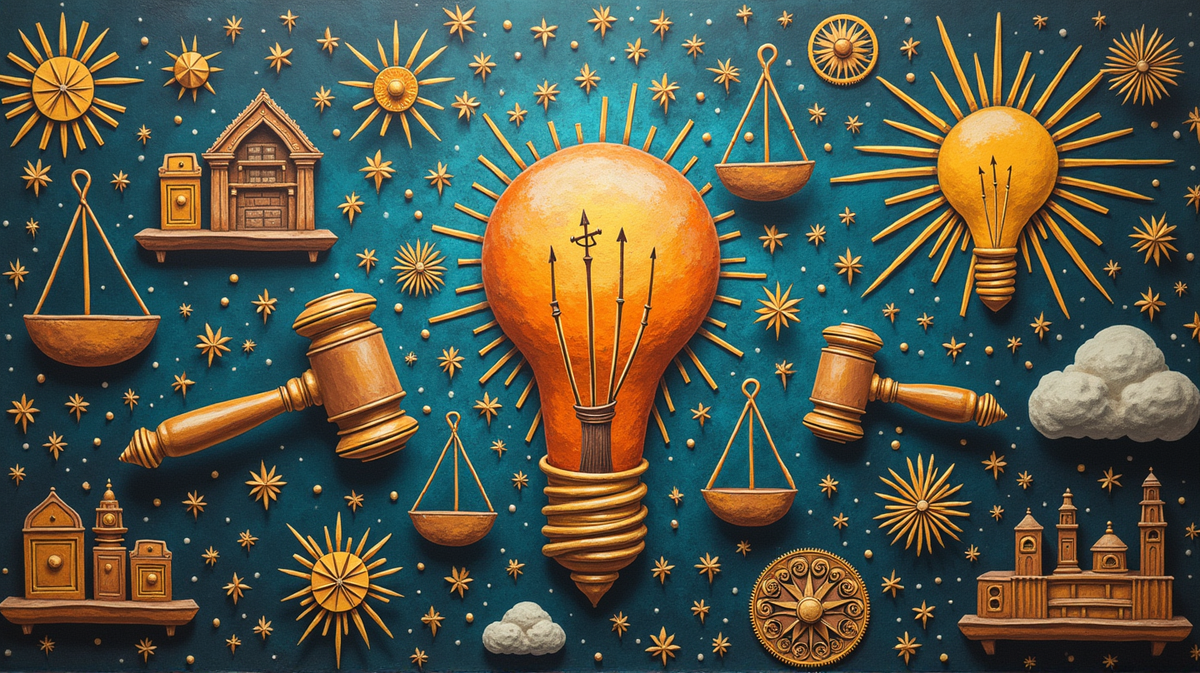Tackling India's Complex Legal Web: Challenges and Opportunities
Explore pressing socio-legal challenges in India like CAA, UCC, and fundamental rights, offering insights into India's dynamic legal landscape.

Understanding the Impact of Evolving Legal Frameworks
Modern India’s legal landscape is as diverse and dynamic as the nation itself, shaped by rapid technological advancements, shifting societal norms, and pressing socio-political issues. As the world becomes increasingly interconnected, India’s legal system is continually tasked with responding to these complexities to ensure justice, equality, and the protection of fundamental rights.
The Significance of Addressing Modern Legal Issues
In today’s world, addressing contemporary legal challenges is crucial for several reasons. First, it reflects the ongoing evolution of society and the changing needs of its citizens, necessitating new legal codes for matters like cybercrime and data protection. Secondly, tackling socio-legal issues such as economic inequality, racism, and gender discrimination is vital for promoting social justice and equitable growth. Furthermore, addressing constitutional challenges, such as those posed by the Citizenship Amendment Act (CAA) and Uniform Civil Code (UCC), helps strengthen democratic values and the rule of law.
Socio-Legal Issues in Focus: Racism, Inequality, and Religious Fundamentalism
Combatting Racial Discrimination
Racial discrimination pervades multiple facets of society, from the criminal justice system to employment and housing. Ensuring equality in sentencing, eliminating employment discrimination, and addressing funding disparities in education are essential steps toward fostering an equitable society.
Grappling with Economic Disparity
As economic growth remains uneven across India’s social strata, judicial reforms are needed to tackle income disparities and provide access to resources, education, and employment opportunities for all.
Managing Religious Fundamentalism
Religious extremism presents a formidable challenge to India’s secular fabric. Legal measures like the Bhartiya Nyaya Sanhita (BNS) and Unlawful Activities (Prevention) Act (UAPA) must be effectively enforced to maintain a balance between controlling extremism and protecting fundamental rights.
Language, Constitution, and Cultural Identity
Linguistic Diversity and Legal Challenges
India’s linguistic diversity enriches its culture but poses challenges for national governance. Legal frameworks must respect regional languages while promoting national unity.
The Ongoing Debate Surrounding Article 370 and UCC
The abrogation of Article 370 and debates over the UCC are among the critical constitutional challenges India faces. While supporters argue these measures uphold justice and integration, critics worry about their implications on religious freedom and federalism.
Emerging Legal Challenges: Data Privacy, LGBTQ+ Rights, and Environmental Protection
- Data Privacy: As India digitizes, robust data protection laws are needed to address concerns around government surveillance while supporting innovation.
- LGBTQ+ Rights: Despite decriminalization of homosexuality, broader legal recognition and protection for LGBTQ+ persons remain crucial for achieving equality.
- Environmental Protection: Strengthened enforcement of existing laws and a focus on sustainable development are necessary to combat environmental degradation.
Toward a Progressive Legal Framework
India’s legal system must continually adapt to the ever-changing challenges of the modern world. Policymakers, legal practitioners, and scholars should engage in ongoing critical debates to ensure the relevance and efficacy of the nation’s legal frameworks.
According to Legal Service India, achieving sustainable development and equality in India demands a proactive and responsive approach to legal challenges. Balancing innovation with accountability, embracing India’s rich cultural diversity, and ensuring the protection of fundamental rights are essential steps toward a just and equitable society.





